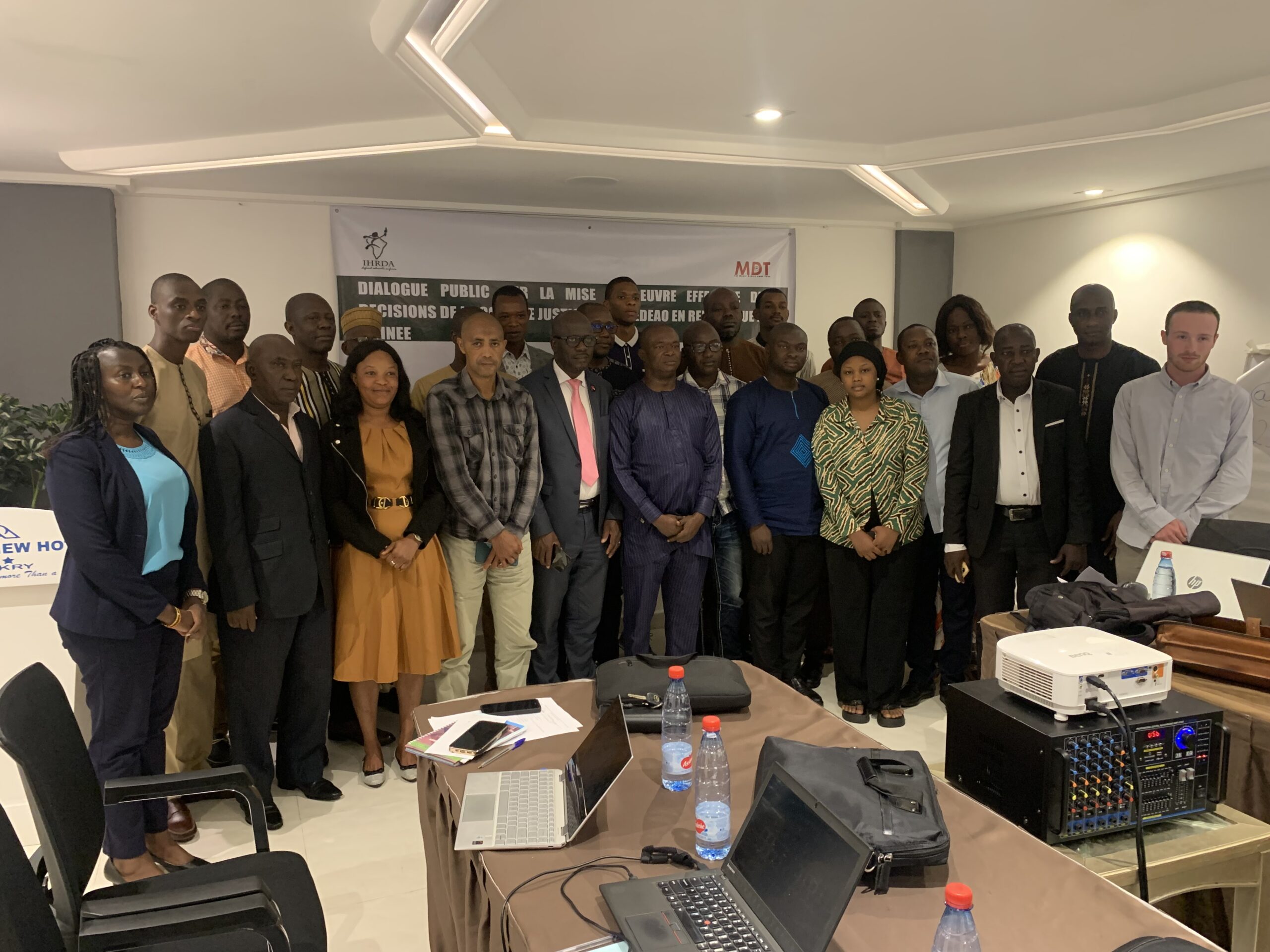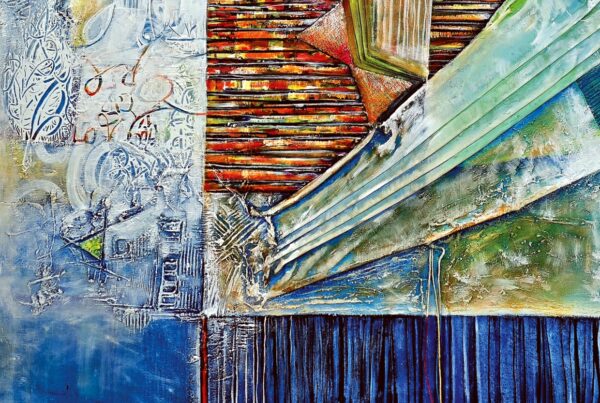Conakry, 7 August 2024: IHRDA and Les Mêmes Droits pour Tous (MDT) have concluded a public dialogue with key stakeholders in Guinea on the implementation of judgements of the Court of Justice of the Economic Community of West African States (the ECOWAS Court) on some cases relating to use of torture by law enforcement officers in Guinea.
The event that brought together Government institutions (notably the Ministry for justice and human rights, and the ministry for the advancement of women, children and vulnerable persons), the National Human Rights Commission, local and international human rights NGOs, the media, and representatives of the victims’ family, focused on the cases ECW/CCJ/APP/18/19 – Alhousseine Camara v. Guinea decided in May 2019 and ECW/CCJ/JUD/10/18 – Bintou Cissé v. Guinea decided in April 2018. Participants assessed level of implementation of the decisions on the said cases and crafted strategies for the engagement of all stakeholders towards their full implementation.
It should be recalled that in the first case, Alhousseine Camara (represented by IHRDA and MDT) was tortured by Gendarme forces in 2011 while in custody, leaving him incapacitated and unable to work. Though legal proceedings were initiated before domestic courts, no measures were taken to investigate the violations, and the perpetrators were not punished. In May 2019, the ECOWAS Court declared Guinea violated Alhousseine’s rights to liberty and freedom from torture and ordered Guinea to pay him reparation worth USD103,000.
In the second case, IHRDA and MDT on behalf of Bintou Cissé (representing the victim’s family), alleged the torture and death of J. Morris ‒ a Liberian‒ while in custody by four (4) Guinean Brigade Officers. Though the Brigade authorities booked the accused officers for interrogation, the latter did not bother to show up and nothing was done to compel them to go for interrogations. In April 2018, the ECOWAS Court found Guinea in violation of the victim’s right to life and right to fair trial and ordered Guinea to pay reparation amounting to about USD84,000 to the family.
“Lack of implementation judgments jeopardizes victims’ rights. This dialogue is a forum for key stakeholders to meticulously identify and reflect together on obstacles to State’s compliance with Court’s decisions and come up with strategies to advocate for full implementation” – IHRDA Senior Legal Officer, Désiré Bigirimana, noted.
The public dialogue falls within the framework of an Open Society Foundations-supported project to strengthen human rights accountability through compliance of States with decisions of African human rights mechanisms. It comes after similar events organised by IHRDA in Cameroon in May 2024 and Sierra Leone in March 2024.





